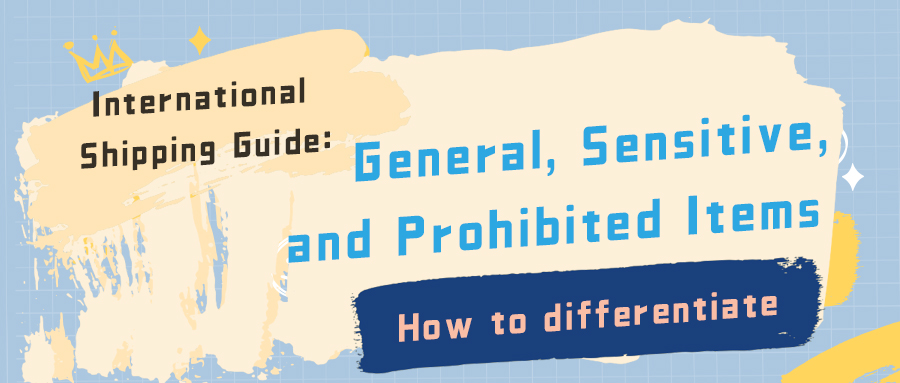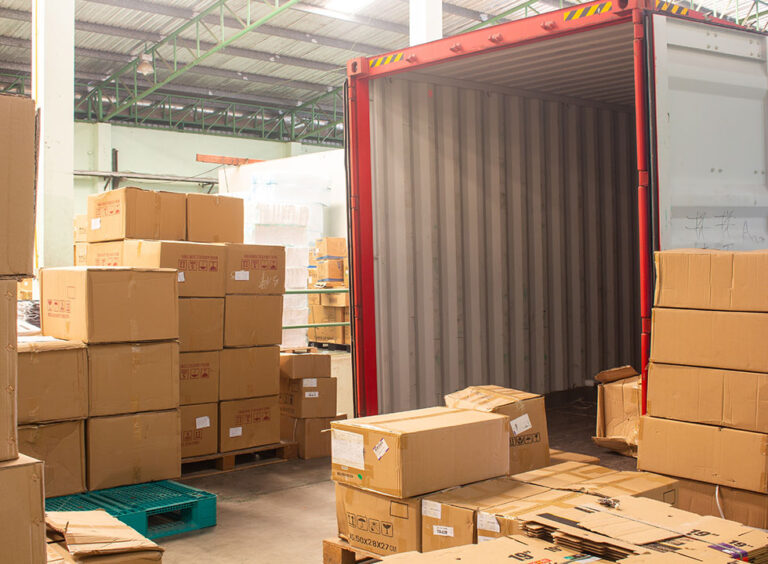International Shipping Guide
How to Differentiate Between General, Sensitive, and Prohibited Items?

Shipping items internationally can be a complex process, especially when understanding what can and cannot be shipped. To simplify this, items are generally categorized into three types: General Goods, Sensitive Goods, and Prohibited Items. This guide will help you easily distinguish between these categories and ensure your shipments comply with international regulations.
General Goods
General goods are everyday items that pose no special requirements or safety risks during transportation. These items are typically non-electronic, non-liquid, and non-branded. Examples include:
- Clothing & Accessories: Non-branded or imitation apparel, shoes, bags, and jewelry (excluding precious metals).
- Daily Necessities: Items like tissues, towels, mirrors, boxes, and tableware.
- Electronic Accessories: Phone cases, charging cables, screen protectors, and laptop stands.
- Furniture: Chairs, sofas, beds, wardrobes, and tea tables.
General goods are the easiest to ship and are accepted by most logistics providers without restrictions.
Sensitive Goods
Sensitive goods fall between general goods and prohibited items. They carry a higher risk of being returned during security checks or seized by customs. While not entirely banned, these items require special handling and documentation. Common examples include:
- Battery-Operated Items: Power banks, lithium batteries, Bluetooth earphones, computers, and watches.
- Liquids, Gels, & Powders: Cosmetics, perfumes, and beverages.
- Food, Medicines, & Health Products: Processed foods, biological medicines, and teas.
- Branded & Luxury Items: Imitation branded goods and luxury products.
- Media: CDs, DVDs, books, and magazines.
Important Note: Not all sensitive goods are non-shippable. However, their transportation depends on the regulations of the destination country and the policies of the logistics provider. Always consult your shipping agent to confirm if they can handle these items.
Prohibited Items
Prohibited items are strictly forbidden by all logistics companies. Shipping such items is illegal and can lead to severe consequences, including fines or legal action. Examples include:
- Tobacco, Weapons, & Drugs: Any form of illegal substances or dangerous goods.
- Suspicious Substances: White powders or any materials resembling illegal drugs.
Tips for Safe Shipping
- Check Regulations: Always verify the shipping regulations of the destination country.
- Consult Your Logistics Provider: If you’re unsure about the category of your item, contact your shipping agent for clarification.
- Proper Packaging: Ensure sensitive goods are packaged securely to prevent damage or leakage during transit.
- Accurate Documentation: Provide complete and accurate customs declarations to avoid delays or penalties.
Need Help?
If you’re unsure about the classification of your item, reach out to our dedicated customer service team. We’ll help you determine the correct category and ensure your package reaches its destination safely and efficiently.
By understanding the differences between general, sensitive, and prohibited items, you can avoid unnecessary delays, fines, or legal issues. Happy shipping!



